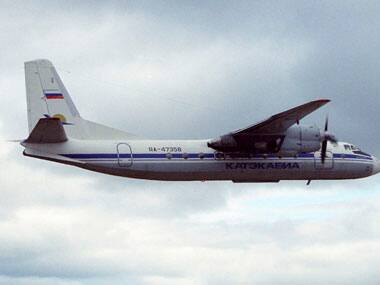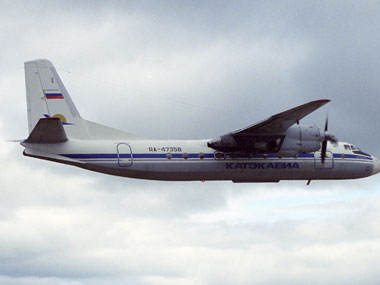New Delhi: The civil aviation ministry has often been accused of inaction, even inertia this past year as crucial policy decisions kept getting delayed. When the Prime Minister directed all ministers to publicize their achievements through media interactions in May, this was one ministry where officials continued to avoid the media. They merely pointed to digitization of some functions and the successful upgrade of India’s safety ratings with the United States as achievements of 12 months of hard work. Legacy policy issues such as a decision on scrapping the 5/20 rule, putting in place a comprehensive civil aviation policy and a policy on air services agreements with other countries were left hanging, seemingly too sensitive to take any decisions on. [caption id=“attachment_2317360” align=“alignleft” width=“380”]
 Reuters[/caption] Frustrated at the glacial speed with which this ministry has been working all of last year, the ‘powers that be’ first changed the top bureaucrat manning the ministry a few weeks back. V Somasundaran was replaced with R N Choubey as the civil aviation secretary. And now, we hear from reliable sources that in a meeting last week, the ‘powers that be’ again warned ministry officials against delaying decisions. Or else. According to these sources, the ‘powers that be’ have now charged Minister of State Mahesh Sharma with taking quick decisions on crucial matters as they decide the fate of his senior A Gajapathi Raju. And Sharma has already begun cracking the whip. On Thursday, Sharma convened a meeting of all stakeholders. This was attended by Secretary Choubey, chiefs of the Airports Authority of India, Air India, Pawan Hans Helicopters Ltd and AERA besides all other top officials of the ministry. The agenda paper for the meeting mentioned numerous items. Minister Sharma emerged from the meeting with two crucial decisions: after hanging fire for years, a decision has now been taken by the ministry about a second airport in the Delhi-NCR region. This is an in-principle decision and will need an approval of the Cabinet, but at least there has been a concrete step forward on the issue. The second decision was to definitely go in for fare regulation to prevent airlines from charging “predatory” fares - this has been discussed within the ministry for months now but a decision was arrived at only in Thursday’s meeting. Some other issues, such as the delay in awarding contracts of four airports by AAI to private bidders, a decision on the 5/20 rule, delay in getting AAI and PHHL listed on the bourses - these were also discussed at the meeting. More such regular meetings are being lined up as Sharma begins to crack the whip. That junior minister Sharma, who now has a say in all crucial ministry decisions, was even more apparent over the weekend. When a senior DGCA official said on Friday that some budget airlines want permission to launch fare schemes where every piece of checked-in luggage will be charged extra, the minister immediately questioned this move and said no airline will be allowed to charge extra for 15 kg of bags. It remains to be seen whether the aviation regulator or the minister prevails but for now, airlines will be wary of launching such schemes without first seeking Sharma’s nod. Then, on the contentious decision to evolve a fare regulation mechanism, the minister has been quite categoric: either airlines themselves come up with a scheme where exorbitant fares are not levied or he will ask the DGCA to step in and regulate them. Our sources tell us the DGCA has already been asked to study fare data for the last five years in a bid to come up with some formula for highest and lowest fares on each domestic sector. Essentially, minister Sharma has dismissed concerns on airlines’ freedom to decide fares - something senior minister Raju was hesitant to dismiss so easily. Sources indicated that Sharma will not be averse to using Air India against private carriers in his zeal to control fares - he may direct the state-run airline to drop fares, forcing private airlines to follow suit. Then, the decision for a second airport in Delhi-NCR has, for years, been mired in controversy as successive governments in Uttar Pradesh pushed for different locations suiting their political constituencies. Sharma said after the Thursday meeting that now, the ministry will appoint consultants to study the implications and needs of a second airport and he will try to take the matter to the Cabinet “very soon”. Though he did not confirm if Zevar near Greater Noida is still in the reckoning for the second NCR airport, sources close to him indicated it is the most probable location since over 2000 acres of land has already been acquired for the purpose of setting up an airport. But even though Sharma now projects efficiency, his real test will be a decision either way on the 5/20 rule which has seen sharp divisions among airlines and other stakeholders. Senior minister Raju was often quoted earlier saying he saw no need for this rule to continue; then a complicated norm of replacing 5/20 with a set of stringent norms for domestic connectivity to remote areas was proposed. Any decision will have to be ratified by the Cabinet but inter-ministerial and industry consultations have been dragging on for months to decide the fate of 5/20. A sensible decision on 5/20 could well signal Sharma’s coming of age as a seasoned politician.
Reuters[/caption] Frustrated at the glacial speed with which this ministry has been working all of last year, the ‘powers that be’ first changed the top bureaucrat manning the ministry a few weeks back. V Somasundaran was replaced with R N Choubey as the civil aviation secretary. And now, we hear from reliable sources that in a meeting last week, the ‘powers that be’ again warned ministry officials against delaying decisions. Or else. According to these sources, the ‘powers that be’ have now charged Minister of State Mahesh Sharma with taking quick decisions on crucial matters as they decide the fate of his senior A Gajapathi Raju. And Sharma has already begun cracking the whip. On Thursday, Sharma convened a meeting of all stakeholders. This was attended by Secretary Choubey, chiefs of the Airports Authority of India, Air India, Pawan Hans Helicopters Ltd and AERA besides all other top officials of the ministry. The agenda paper for the meeting mentioned numerous items. Minister Sharma emerged from the meeting with two crucial decisions: after hanging fire for years, a decision has now been taken by the ministry about a second airport in the Delhi-NCR region. This is an in-principle decision and will need an approval of the Cabinet, but at least there has been a concrete step forward on the issue. The second decision was to definitely go in for fare regulation to prevent airlines from charging “predatory” fares - this has been discussed within the ministry for months now but a decision was arrived at only in Thursday’s meeting. Some other issues, such as the delay in awarding contracts of four airports by AAI to private bidders, a decision on the 5/20 rule, delay in getting AAI and PHHL listed on the bourses - these were also discussed at the meeting. More such regular meetings are being lined up as Sharma begins to crack the whip. That junior minister Sharma, who now has a say in all crucial ministry decisions, was even more apparent over the weekend. When a senior DGCA official said on Friday that some budget airlines want permission to launch fare schemes where every piece of checked-in luggage will be charged extra, the minister immediately questioned this move and said no airline will be allowed to charge extra for 15 kg of bags. It remains to be seen whether the aviation regulator or the minister prevails but for now, airlines will be wary of launching such schemes without first seeking Sharma’s nod. Then, on the contentious decision to evolve a fare regulation mechanism, the minister has been quite categoric: either airlines themselves come up with a scheme where exorbitant fares are not levied or he will ask the DGCA to step in and regulate them. Our sources tell us the DGCA has already been asked to study fare data for the last five years in a bid to come up with some formula for highest and lowest fares on each domestic sector. Essentially, minister Sharma has dismissed concerns on airlines’ freedom to decide fares - something senior minister Raju was hesitant to dismiss so easily. Sources indicated that Sharma will not be averse to using Air India against private carriers in his zeal to control fares - he may direct the state-run airline to drop fares, forcing private airlines to follow suit. Then, the decision for a second airport in Delhi-NCR has, for years, been mired in controversy as successive governments in Uttar Pradesh pushed for different locations suiting their political constituencies. Sharma said after the Thursday meeting that now, the ministry will appoint consultants to study the implications and needs of a second airport and he will try to take the matter to the Cabinet “very soon”. Though he did not confirm if Zevar near Greater Noida is still in the reckoning for the second NCR airport, sources close to him indicated it is the most probable location since over 2000 acres of land has already been acquired for the purpose of setting up an airport. But even though Sharma now projects efficiency, his real test will be a decision either way on the 5/20 rule which has seen sharp divisions among airlines and other stakeholders. Senior minister Raju was often quoted earlier saying he saw no need for this rule to continue; then a complicated norm of replacing 5/20 with a set of stringent norms for domestic connectivity to remote areas was proposed. Any decision will have to be ratified by the Cabinet but inter-ministerial and industry consultations have been dragging on for months to decide the fate of 5/20. A sensible decision on 5/20 could well signal Sharma’s coming of age as a seasoned politician.
Taxiing for long, aviation ministry set to take off under Mahesh Sharma
Sindhu Bhattacharya
• June 29, 2015, 14:59:17 IST
Policy issues such as a decision on scrapping the 5/20 rule, putting in place a comprehensive civil aviation policy and a policy on air services agreements with other countries were left hanging
Advertisement
)
End of Article